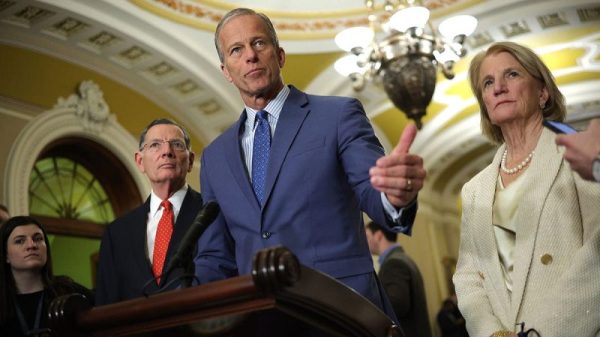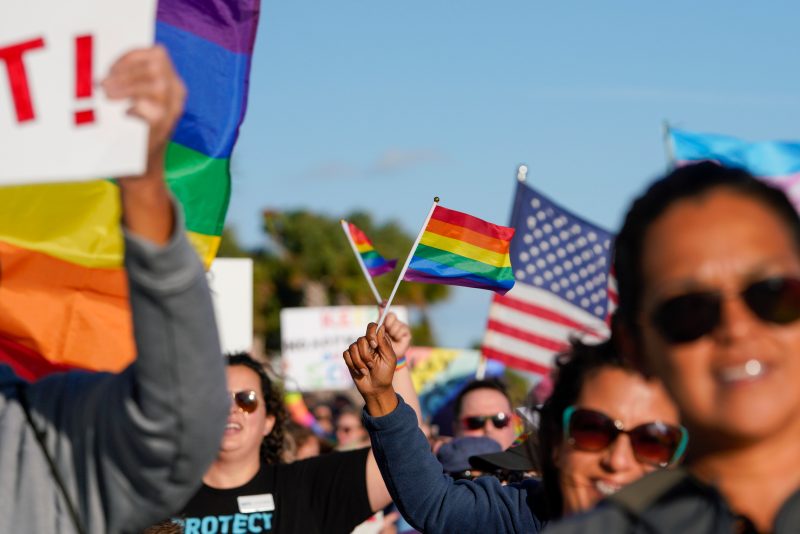About 1 in 10 Americans identify as LGBTQ+, according to new data from PRRI — a bit more than Gallup measured in similar polling last year.
PRRI’s data, though, offer an insight that Gallup didn’t: the size of the LGBTQ+ population in each state. Only about 4 percent of South Carolina residents indicated that they were LGBTQ+, the lowest percentage of any state. The highest percentage was in New Mexico, where an estimated 16 percent of residents fall into that category.
Those well-versed in politics might not be surprised by this. South Carolina is a conservative state and New Mexico a liberal one, so that tracks. But one state tied for the third-highest percentage of LGBTQ+ residents was very red Nebraska; very blue Hawaii was tied at the bottom for 46th place.
In fact, PRRI didn’t find much of a correlation between a state’s LGBTQ+ population and its politics. Members of that community were much more likely to say they were Democrats than Republicans (again, as you might expect), but because only 1 in 10 Americans are LGBTQ+, that doesn’t drive the overall political identity of the state.
PRRI also asked respondents whether they support legal protections for LGBTQ+ Americans. The idea had wide support, with about three-quarters of Americans expressing support for the idea. Interestingly, the level of support in a state wasn’t correlated with the size of the LGBTQ+ population.
You can see that below. We might expect that, as the LGBTQ+ population in a state increases, so does support for legal protections. Instead, we see a big cloud of states, some with large LGBTQ+ populations that are lukewarm on protections and some with relatively small populations that heavily support the idea.
But notice what happens if we color each state by its 2020 presidential vote. Now you see that most of the states toward the top — more supportive of protections — are blue, meaning they voted for President Biden. Most at the bottom are red.
In fact, if we compare the level of support for legal protections to the 2020 vote margin, we see an actual correlation. States that voted more heavily for Biden — and Utah — are more supportive of protections.
In the abstract, this makes sense. Democrats are much more supportive of those protections than Republicans, PRRI found, and states with more Democrats voted more heavily for Biden. Again, the scale of the LGBTQ+ population in any given state is modest enough that it constitutes only a fraction of the electorate.
It is nonetheless striking that the best predictor of support for protecting LGBTQ+ Americans against discrimination isn’t the percentage of LGBTQ+ people in the state. It’s the percentage of Democrats.






































